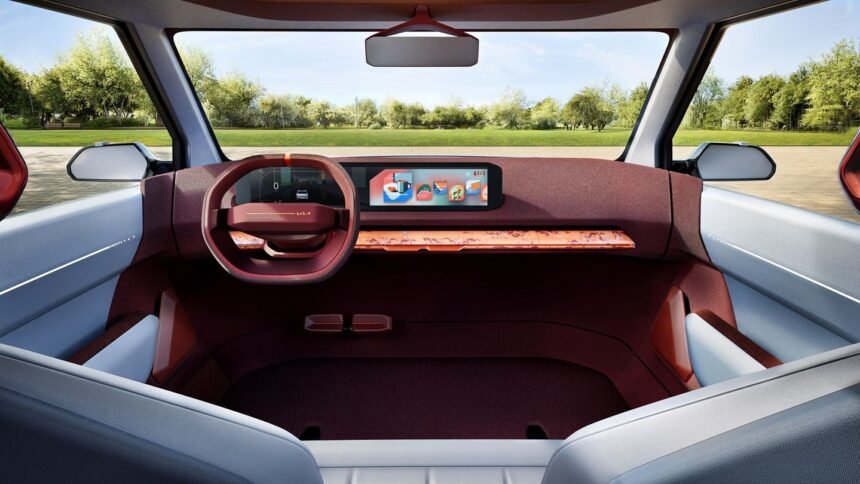Kia Corporation has recently announced collaborations with materials companies Bcomp, Simplifyber, and Biomyc to incorporate bio-produced materials into its Concept EV2, a B-segment electric SUV. The unveiling took place during Kia’s 2025 EV Day event in Barcelona, Spain.
The main goal of these partnerships is to replace traditional synthetic materials with sustainable alternatives in Kia’s upcoming vehicles, in line with the company’s commitment to environmental sustainability. Nathalie Bucher, senior designer at Kia Europe Design Center, emphasized the importance of these collaborations in bringing innovative material solutions to the mass market, ensuring that each material aligns perfectly with the company’s vision for creating stylish, environmentally conscious, and high-quality vehicles for the future.
One of the key collaborations is with Swiss cleantech company Bcomp, which has introduced ampliTex – a flax fiber-based composite – into the back seat shell and front seat substructures of the Concept EV2. This material offers lightweight properties, durability, and a refined appearance, while also supporting recyclability and end-of-life reuse. This partnership builds on Bcomp’s previous work with Kia on the Concept EV3 and EV4 vehicles.
Additionally, Kia partnered with Simplifyber to incorporate dashboard and door panel components made from Fybron, a cellulose-based material. Fybron is derived from a blend of wood pulp, lyocell, natural rubber latex, bio-based binders, and synthetic fibers. The liquid-based production process used by Simplifyber reduces material waste and simplifies assembly by delivering pre-shaped, textured parts.
Biomyc, a materials design firm, contributed mycelium-based components to the vehicle’s interior. The mushroom-derived material serves as both insulation and a visual design element. Biomyc developed a precise mold and growing technique to produce a seamless mycelium surface, along with a coloring process that meets Kia’s Pantone specifications. The company also conducted research on sustainable coatings and additives, creating over 180 samples for future reference in Kia’s design operations.
In addition to these material innovations, Kia recently introduced an AI voice assistant for drivers of the EV3 as part of its latest over-the-air update. This update includes improvements to voice control, connectivity, entertainment, and navigation features.
Overall, Kia’s partnerships with Bcomp, Simplifyber, and Biomyc demonstrate the company’s commitment to sustainability and innovation in its vehicle design. By integrating bio-produced materials into the Concept EV2, Kia is setting a new standard for environmentally conscious automotive manufacturing.







